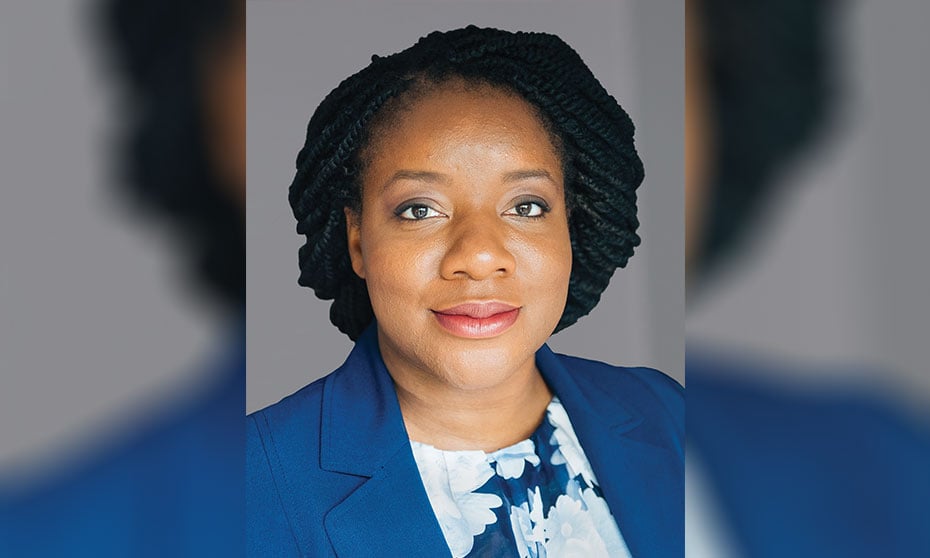Cassels partner explains how she propelled herself to the forefront of her field

Patience Omokhodion doesn’t fixate on competition — she finds her finish line and pushes herself toward it.
Omokhodion, a partner at Cassels Brock & Blackwell LLP who focuses on financial services and banking law, says she has propelled herself to the forefront of her field by reminding herself to run her own race.
“It just means celebrating when others succeed, without always comparing yourself to the speed at which other people are going — or what they might be achieving or obtaining. It's the sense of accepting this life, this career, this work— whatever we have — is my race to run,” she says. “It’s my business to grow. My practice to nurture — that I might build something that I might hopefully be proud of. A notion of knowing that I can do things my own way.”
Like a cross country course, Omokhodion’s path has been winding, and her success has taken work, she says. Coming from a family of lawyers and entrepreneurs, Omokhodion had long had an interest in business but also felt the pull of passions like literature, and later, litigation.
“I had the opportunity to try project finance, general finance and securitization. And it was funny — for someone coming from an arts background, with a love of languages and literature, I really took to business law, much to the surprise to some of my colleagues, friends and family. It challenged me, it interested me, it excited me.”
Again, her path took an unexpected turn when she ended up in Canada after growing up and launching a career in the UK.
“I’m now someone living in my third culture. I’m Nigerian — I’m the child of immigrants. I moved to the UK when I was a baby, and I grew up steeped in Nigerian culture. And I’m now an immigrant again to Canada, and a proud new Canadian as of last year,” she says. “All my professional life I’ve grown so used to being ‘the only one’ in a meeting, seeing very few people who looked like me . . . . as a woman and even more so as a woman of colour.”
Watching her parents go back to school and build a business has shaped her perspective on her career, says Omokhodion, who will be speaking about executing diversity and inclusion strategies at Canadian Lawyer’s Women in Law Summit on Feb. 12, 2020 in Toronto.
“Something I personally have learned is owning my own story — working in different cultures or having my big Nigerian family, which can be boisterous at times,” she says. “Experiencing those things made me the person and the lawyer I am today. I want people to know they can own their own stories. They can see demonstrations of their resilience, or endurance, in the various things they have been through. Those can be used to make them better lawyers, more empathetic, more flexible and hardworking.”
Despite her independence, Omokhodion notes the importance of finding a real sense of belonging in one’s career.
“I remember the first time that I attended a [Black Female Lawyers Network] event. Just having the opportunity to just walk into a room and to see so many women of color in my field, doing the same work that I do. Women with different shades of black, different body types, different hairstyles,” she says. “And I realized at that moment — that until that moment — I'm not sure that I realized how much I needed that.”
Omokhodion says that she’s found Cassels walks the walk when it comes to inclusion, hosting a Black affinity group and a group to support parents of young children.
“Just the ability to meet together and to think about how the firm as a collection of people with different lived experiences, different struggles and demands, can do better and be better respecting, valuing and caring for one another. And really tackling any of those barriers that might arise that prevent people from feeling or even being included,” she says.
It can also be powerful just to know that you have a professional mentor to help parse a challenge, Omokhodion says. She cited Deborah Glatter at Cassels and Marc Mercier as people who have helped her in her career.
“We, as women, can be conditioned to not ask for the things that we want. So learning to ask, and be willing to hear, ‘No,’ or ‘Not yet,’” she says. “There are lessons to be learned even in exercising the courage to ask in the first place. That person you're asking now knows that this is what you want. You've laid your cards on the table.”
To hear more from Patience and other leading women in law, book your ticket to the Canadian Lawyer Women in Law Summit here.










